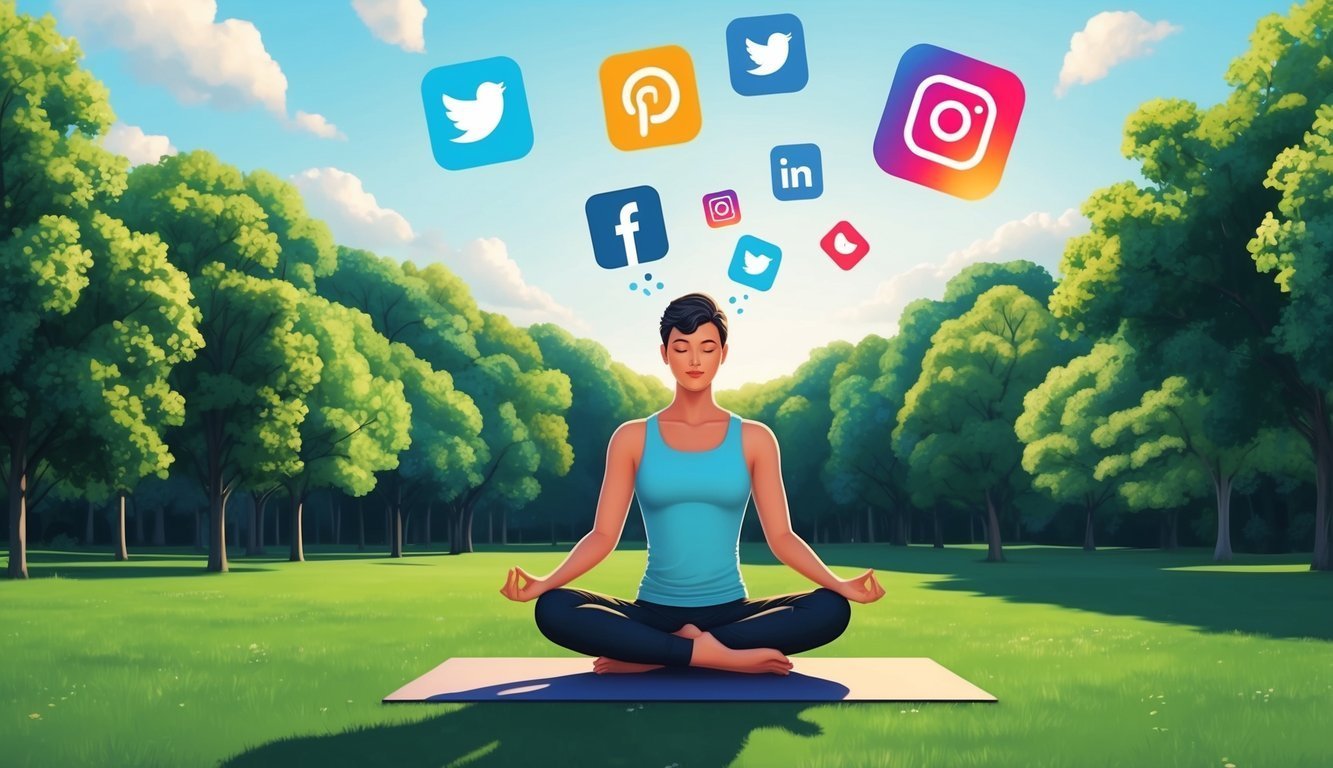The Impact of Social Media on Mental Health
Have you ever found yourself aimlessly scrolling through social media and questioning its benefit to your life? If so, you’re certainly not the only one.
Recent studies suggest that the average American adult spends more than two hours on social media each day, while teenagers often clock in even more time—sometimes up to four hours on platforms like TikTok and Instagram.
With growing evidence of the potentially addictive nature of these apps, many are now exploring ways to take a step back.
A surge in searches for “social media detox”—up by 60 percent—signals a rising awareness and urgency surrounding this issue.
But does taking a break genuinely make a difference? The answer is a resounding yes, according to both experts and scientific studies.
The impact on your brain and your overall happiness can be more profound than you might think.
Reaping the Rewards of a Digital Detox
Even a short break from social media can yield significant benefits.
Research conducted by Paige Coyne and Sarah Woodruff found that young adults who limited their social media use to just 30 minutes a day for two weeks reported major improvements in their mental health.
Participants experienced reduced stress, better sleep quality, and a noticeable uptick in overall life satisfaction.
In another study targeting teenage girls, a mere three-day hiatus from social media had a powerful effect on self-esteem and body image issues.
Woodruff pointed out that even short breaks can raise consciousness about how these platforms influence our lives.
However, it’s important to acknowledge the challenges that may arise in the early phases of a detox.
You might experience cravings, anxiety, or withdrawal symptoms as your brain adjusts to reduced dopamine levels. Dr. Lembke reassures us that enduring this initial discomfort is crucial; it allows your brain to rejuvenate and break free from the cycle of relentless desire.
Interestingly, many participants in detox studies reported that as time went on, the process became simpler and even enjoyable.
Strategies for Coping with Social Media Withdrawal
- Set Realistic Goals: Rather than trying to quit cold turkey, think about easing off gradually.
Decide if you’d prefer to cut your online time in half, take a brief pause, or abstain completely for a few weeks.
- Create a Support Network: Share your detox journey with friends or find accountability partners.
In one study, teens shared their detox progress via a WhatsApp group, helping them feel connected and less afraid of missing out.
- Explore Alternative Enjoyment: Fill the gap left by social media with activities that provide delayed but fulfilling gratification, such as cooking, making music, or exercising.
These healthier pursuits can help maintain balanced dopamine levels in the brain.
- Implement Protective Measures: Consider keeping your phone out of the bedroom, silencing notifications, and using apps that limit your screen time.
Creating both physical and mental boundaries can prevent a slide back into your old habits.
Embarking on a social media detox is not just about hitting the refresh button; it’s an opportunity to reassess your relationship with these platforms.
Take some time to reflect on whether social media adds value to your life or serves as a distraction from what truly matters.
Experts advocate for regular detox periods to help maintain awareness and evaluate the role of social media in your daily life.
Woodruff notes that while we may not be able to eliminate social media completely, taking breaks can foster a healthier balance and ensure that the time spent online contributes positively to our well-being.
In the end, the aim isn’t to cut social media out of your life entirely, but to regain a sense of control and improve your mental health.
By approaching social media use thoughtfully and intentionally, you can enjoy its benefits without falling prey to its downsides.
Source: Optimistdaily


